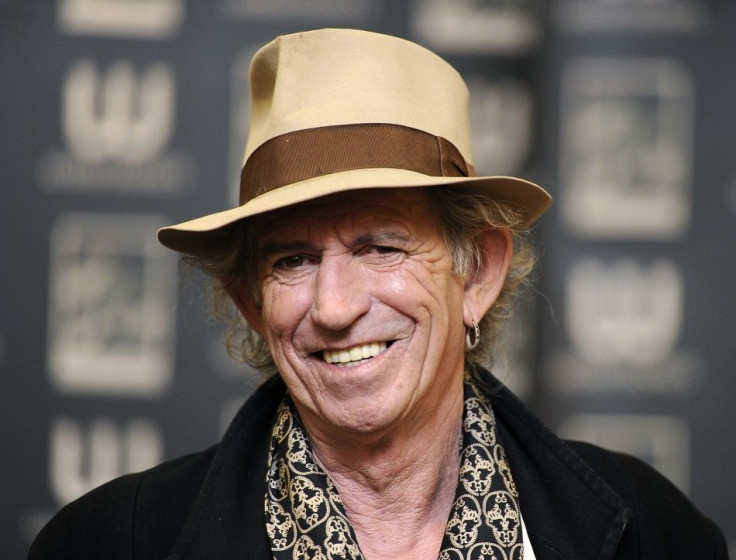Legalization Of Marijuana: The End Of 'Cool'

New York Republican Rob Astorino has condemned Democratic Governor Andrew Cuomo’s decision to permit the limited use of medical marijuana in the state by seriously ill patients suffering from various ailments -- including glaucoma and cancer -- in certain hospitals and clinics under the supervision of the Department of Health.
Astorino, the Westchester County Executive who may challenge Cuomo in the next gubernatorial election, said this step would lead to full legalization of marijuana. “Let’s be honest, once this door is opened, increased drug abuse and a push for further drug liberalization will follow,” Astorino said, according to the New York Post. “With so many people out of work and fleeing our state, this is tops on the governor’s to-do list?”
But Astorino (who is obviously playing partisan political games) probably knows full well that most of the public supports not only the legalization of medical marijuana, but full legalization of the drug itself for recreational purposes. According to a recent poll by Quinnipiac University, 70 percent of New York State voters (including 58 percent of Republicans) support the legalization of medical marijuana. Support for full legalization is probably less than these numbers, but it's nonetheless quite high across the state, especially among youths. Eventually, probably not this year and maybe not even in the next five years, New York will join Colorado in legalizing the sale of recreational marijuana -- it is inevitable.
I have heard all the arguments for the legalization of pot -- that it’s no more harmful than cigarettes or alcohol (which the state eagerly sells and profits from); that it would remove the huge profits in drug dealing generated by organized crime; that taxation of a regulated marijuana industry could ease the financial debt of virtually every state in the union; and that it would also ease the overcrowding in courts and prisons burdened by nonviolent drug cases.
But there is something else to be considered here -- and it has nothing to do with dollars and cents. Ironically, I think that when pot is fully legalized, that will be a sad day for the millions of people who smoke marijuana and love it (and even use it to define their very personalities). That’s because, by legalizing weed, its consumption will no longer be considered “cool” -- its cachet will be removed, rendering the act of lighting up a joint about as “hip” as eating a McDonald’s cheeseburger or downing a Diet Pepsi.
I have friends who've been smoking pot since they were teenagers, for more than three decades of marijuana consumption. For the most part, a portion of the “high” they get from it is that they are doing something that is against the law. They are otherwise nice, normal, law-abiding people with conventional, peaceful lifestyles, but their weekly (or daily) toking of pot makes them feel “free” and “unbound” from society’s strictures. If what they do is suddenly legalized, their very reasons for smoking dope will have been undermined. Of course, they will not quit (they are addicted, though they won’t admit that) and they will simply be lumped in with overweight beer-guzzlers and choking tobacco smokers. And there is nothing “cool” about that.
According to Marijuana Facts and Stats, at least 100 million Americans have tried pot at least once in their lives, making it the most common illegal drug used in the country. So, in a way, pot smokers are already in the “mainstream.” Legalizing their favored drug of choice will officially make them part of the dull, mass-consumer public whom many of them look down upon.
Mass media, particularly the pop music industry, has played a tremendous role in popularizing and glamorizing drugs, thereby brainwashing hundreds of millions of people around the world to think that getting high on cannabis is somehow an “attractive” quality and even “spiritual” in some cases.
Indeed, the drug addictions of major rock stars form a permanent part of their fame and legacy. How many times has Keith Richards of the Rolling Stones been described as a rock-and-roll “outlaw” due to his long-term practice of consuming illegal drugs (both soft and hard). Sadly, many of his fans, too, have delved into hard-core drugs and addiction (burdened by the inconvenience of not enjoying and sharing Keith's vast wealth and fame).
But, now in Colorado (and soon New York and elsewhere), a pot-smoking Keith Richards' “coolness” would be destroyed -- and he would be reduced to what he essentially is: a hideously ugly, absurd old man with very few redeeming qualities.
There are, of course, many other celebrities who loudly and frequently "broadcast" their love of marijuana as a way of establishing their so-called street cred (as if smoking pot were in any way dangerous or risky). Perhaps the most pathetic example of this phenomenon is the stand-up leftist "comic” Bill Maher. This repellent, no-talent, unfunny loser has repeatedly shouted from the mountain-tops that he is extremely fond of dope and has deluded himself into thinking he is “cool” as a result.
This same attitude exists among people who are not famous -- I have known many of them. Imagine the nerdiest, geekiest, unhippest, dullest, most uninteresting and unattractive bourgeois, middle-class white people in bland suburbia, give them some marijuana (which is extremely easy to acquire virtually anywhere in the country), and watch them transform into self-described “hipsters.” They fantasize they are “rogues” and "criminals” (ignoring, of course, the fact that police tend to disproportionately arrest pot-smokers who are usually poor and from ethnic minorities in urban centers). They are, of course, the same people who are terrified of such things as drug-related violence, or getting arrested, spending the night in jail and "real" criminals. Smoking marijuana creates a fantasy in their minds that they have joined the rarefied air of "cool people."
What will such people do when pot is fully legalized? I shudder to even think about it.
© Copyright IBTimes 2024. All rights reserved.





















